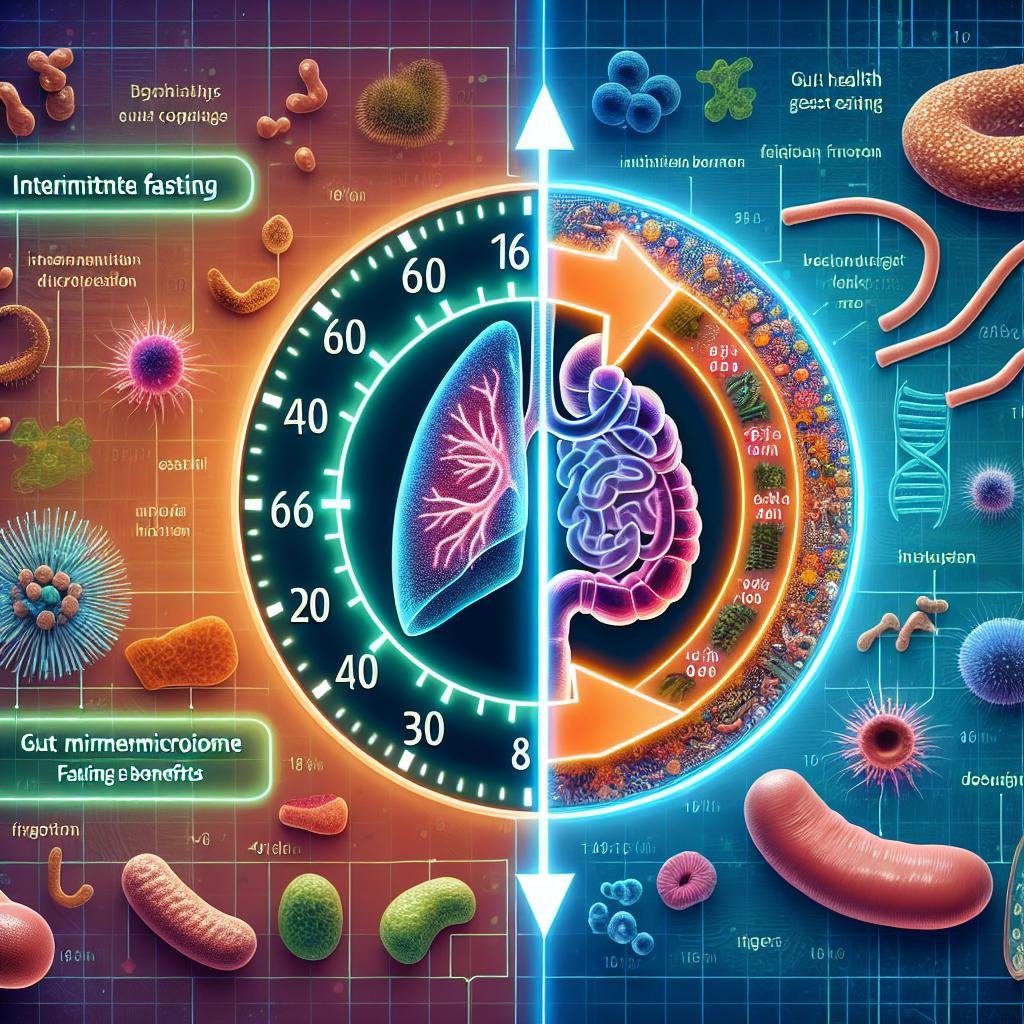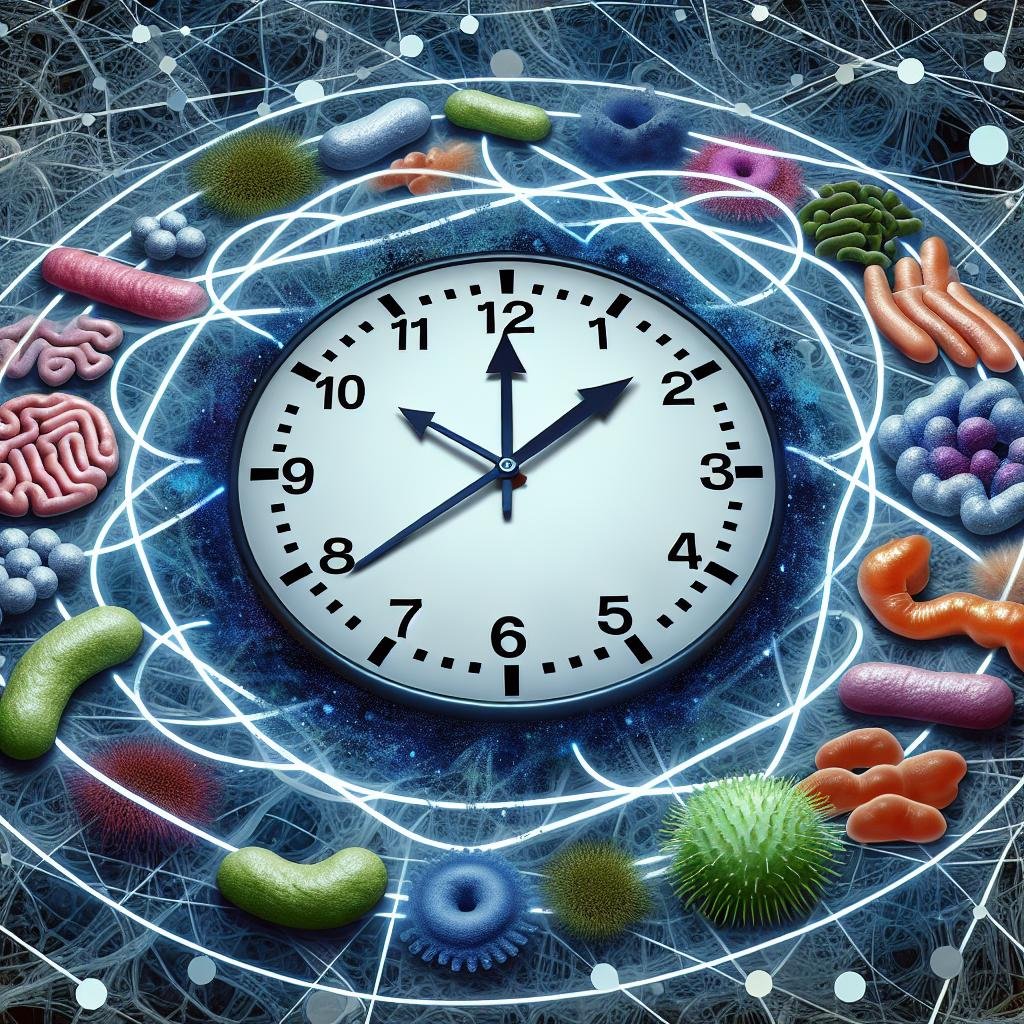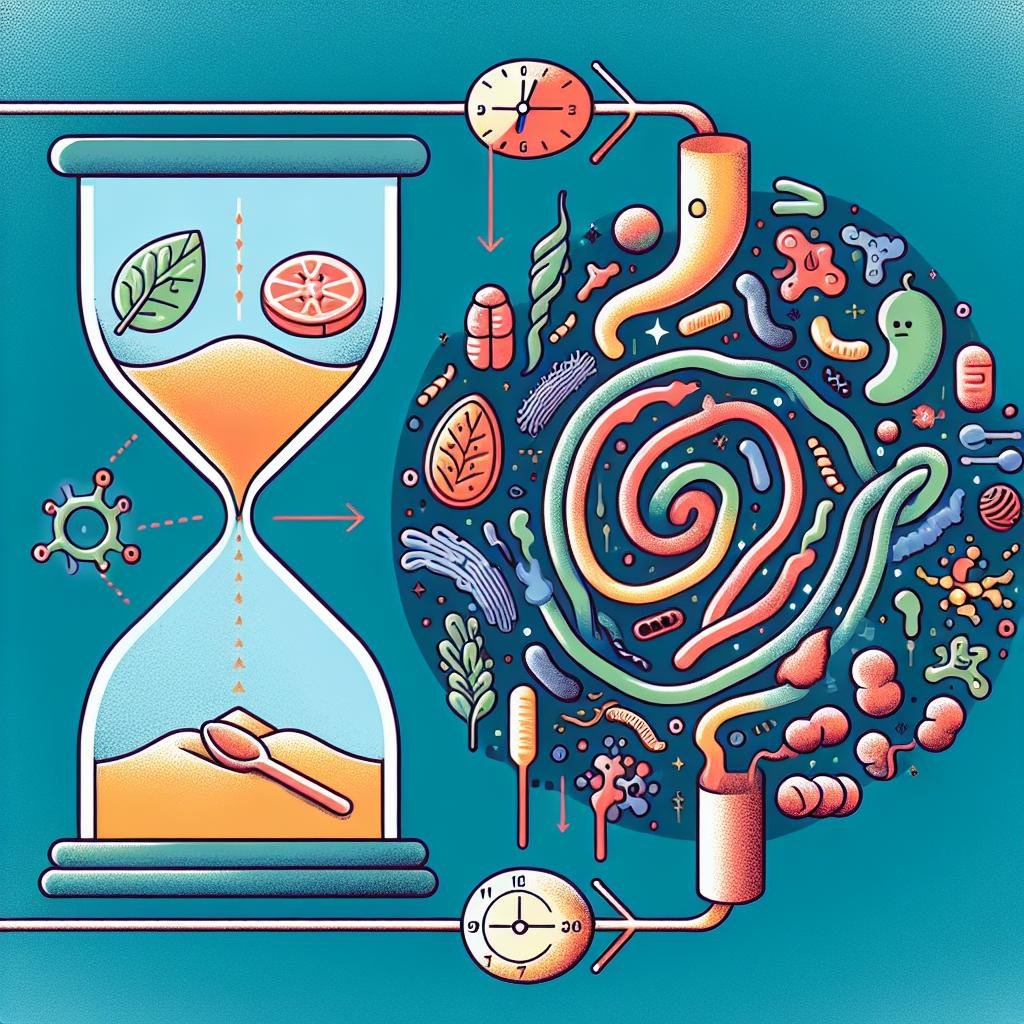In recent years, intermittent fasting has surged in popularity as a holistic approach to health and wellness, captivating the attention of dieters, fitness enthusiasts, and researchers alike. At the heart of this trendy eating pattern lies an intricate web of biological processes, including one that has emerged as a key player in our overall well-being: the gut microbiome. This fascinating ecosystem, teeming with trillions of microorganisms, plays a crucial role in digestion, immunity, and even mood regulation. As we unravel the unique relationship between intermittent fasting and the gut microbiome, we are reminded of the complexities of our bodies and the potential for dietary choices to influence our internal landscapes. In this article, we will explore the scientific connections between fasting and our gut flora, shedding light on how this symbiotic relationship may pave the way for improved health outcomes and a deeper understanding of our own biology.
The Science Behind Intermittent Fasting and Gut Health
Intermittent fasting (IF) has gained widespread popularity not only for its potential benefits in weight management but also for its intricate relationship with gut health. The gut microbiome, a diverse community of microorganisms residing in our digestive tract, plays a critical role in overall health, influencing everything from digestion to immune function. Research indicates that IF may foster a beneficial gut environment by promoting the growth of beneficial bacteria while reducing harmful species. By creating periods of fasting, IF allows the gut to undergo a process of regeneration, which can lead to enhanced microbial diversity and improved gut barrier function.
Studies suggest that the timing of food intake influences the circadian rhythms of the gut microbiome, which aligns with our body’s natural biological clock. This rhythmic pattern may contribute to optimal performance of the gut, with benefits such as:
- Enhanced Metabolism: Improved energy utilization and fat oxidation.
- Decreased Inflammation: Lower levels of systemic inflammation markers.
- Better Digestive Health: Reduced prevalence of gastrointestinal disorders.
Furthermore, the fasting periods of IF can lead to autophagy, a process that aids in the removal of damaged cells and promotes the overall health of gut tissues. This fascinating interplay between dietary patterns and microbiome function underscores the potential of intermittent fasting as a transformative approach to enhancing gut health and, consequently, overall well-being.

Exploring the Transformative Role of Gut Microbiota
The gut microbiota, a complex community of microorganisms residing in our intestines, plays a pivotal role in maintaining overall health. Recent research suggests that the composition and diversity of gut microbes can profoundly influence various metabolic processes, including digestion, immune function, and even mental health. Key benefits of a balanced gut microbiome include:
- Enhanced Nutrient Absorption: Beneficial bacteria help in breaking down food and improving nutrient absorption.
- Immune System Modulation: A diverse microbiota supports a robust immune response.
- Metabolic Health: Certain gut microbes can influence weight regulation and insulin sensitivity.
Interestingly, intermittent fasting may also contribute to the optimization of gut microbiota. By creating periodic windows of fasting and feeding, this dietary approach may foster a favorable environment for beneficial microbes to thrive. Studies indicate that intermittent fasting can lead to an increase in microbial diversity, which is often associated with improved gut health. The effects of intermittent fasting on gut microbiota can be summarized as follows:
| Effect | Outcome |
|---|---|
| Increased Diversity | Promotes resilience against pathogens |
| Reduced Inflammation | Alleviates gut discomfort |
| Lowers Fat Storage | Enhances metabolic efficiency |

Practical Tips to Optimize Your Fasting Journey
Embarking on an intermittent fasting journey can be transformative, particularly when considering its effects on the gut microbiome. To maximize the benefits, here are some essential strategies to keep in mind:
- Hydration is Key: Ensure you’re drinking enough water during fasting and eating periods. Adequate hydration supports digestion and can help maintain a balanced gut environment.
- Diverse Diet: Focus on incorporating a variety of whole, nutrient-dense foods during your eating windows. Foods rich in fiber, such as fruits, vegetables, and whole grains, can nourish beneficial gut bacteria.
- Consistent Schedule: Maintain a regular eating and fasting schedule to help your microbiome establish a rhythm, which may enhance its functions.
Additionally, tailor your fasting approach to suit your lifestyle and body’s needs. Consider these practical tips:
| Tip | Description |
|---|---|
| Start Slowly | Gradually increase fasting duration to allow your body to adapt. |
| Monitor Gut Reactions | Keep track of how various foods affect your gut health during eating periods. |
| Incorporate Probiotics | Consider adding probiotic-rich foods like yogurt and kimchi to enhance gut flora. |

The Future of Intermittent Fasting and Microbiome Research
The exploration of the connection between intermittent fasting and the gut microbiome is just beginning to unveil its potential, with research evolving rapidly. As scientists delve deeper into the intricate relationship between dietary patterns and gut health, several exciting avenues are emerging. For instance, intermittent fasting may promote a diverse and resilient microbiome through mechanisms such as altered gut transit times and metabolite production. These factors are believed to play a crucial role in modulating inflammation and metabolic processes, highlighting the significance of timing in dietary approaches.
Future research aims to clarify how various intervals of fasting influence specific microbial communities and their related health outcomes. Key points of focus include:
- Microbial Diversity: Understanding how fasting impacts the diversity and stability of gut bacteria.
- Host-Microbe Interactions: Exploring the reciprocal relationships between fasting, microbial composition, and host metabolism.
- Specific Fasting Protocols: Evaluating the effects of different intermittent fasting regimes, such as the 16/8 method or alternate-day fasting.
Moreover, ongoing studies may reveal how tailored fasting strategies could enhance the therapeutic potential of the gut microbiome in managing conditions like obesity and diabetes.
To Wrap It Up
As we conclude our exploration of the intricate relationship between intermittent fasting and the gut microbiome, it becomes clear that this connection is a fascinating arena still ripe for discovery. The symbiotic relationship between fasting and our gut health reveals a tapestry woven with dietary patterns, metabolic rhythms, and the diverse ecosystems of bacteria residing within us.
While current research highlights promising potential benefits—from improved digestion to enhanced metabolic pathways—it is essential to approach these findings with a balanced perspective. Individual experiences may vary, and what works wonders for one may not resonate with another. As we continue to unravel the complexities of our gut microbiome, ongoing studies and personal insights will be pivotal in shaping our understanding of nutrition and well-being.
Ultimately, whether you’re a seasoned practitioner of intermittent fasting or a curious newcomer, fostering a healthy gut is a journey worth embarking upon. By aligning our eating patterns with our body’s natural rhythms and listening to its signals, we can cultivate a more harmonious relationship with our microbiome. As science progresses, we remain hopeful that these insights will empower us to make informed choices that not only nourish our bodies but also enhance our overall health.
So, take a moment to reflect on your own dietary practices, remain open to new information, and perhaps even experiment with intermittent fasting to see how it influences your gut health. The connection between our choices and the thriving universe within us is a testament to the profound and interconnected nature of life itself. Happy exploring!

